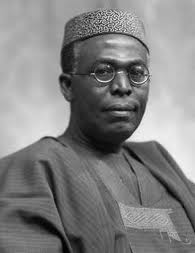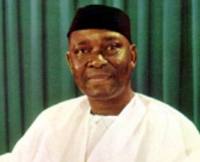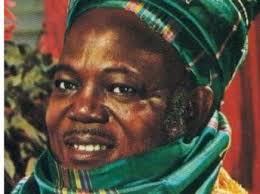


By Onyeabo China Ifeyinwa
In far away Quebec, Canada, last Monday, October 22, 2012 in his address at the 127th Inter Parliamentary Union, IPU, Assembly, Mark addressed the theme: “Citizenship, Identity, Linguistic and Cultural Diversity in a Globalised World”, with the progressive view that he would push for the replacement of “State of Origin” with “State of Residency” in the impending Constitution amendment exercise.
Said he, to journalists: “Let’s forget the business of state of origin and go to state of residence. Once you are resident in a place and you perform your civic responsibilities for the period, there is no reason why you should not benefit, provided, of course, you don’t claim dual residency”.
I call this a Zikist agenda, because Dr Nnamdi Azikiwe’s National Council of Nigerian Citizens, NCNC, right from its days under the leadership of Dr Herbert Macaulay, had dreamed of an independent Nigeria where the citizens would “forget their differences” and build a nation where everyone would be proud to belong; a model of patriotic dynamism out of Africa and a toast of the Black world. He had as associates outside the NCNC another political party in the North named the Northern Elements Progressive Union, NEPU, led by Malam Aminu Kano and his followers.
The NCNC was a truly national party, where Igbos produced elected officers in Lagos and parts of the old Western Region, and people from the Mid West and Yorubas won election in Port Harcourt. A Fulani man, Alhaji Umaru Altine, a staunch member of the Zikist Movement who went to jail in defence of zero tolerance to British colonialism, was elected the first Mayor Enugu.
Zik’s fellow travelers
But Zik’s fellow travellers in the fight against British rule did not share his dreams. When Obafemi Awolowo returned from England, his vision was to become part of a national political movement, but only if he would be allowed to control the Western Region cell of it. He eventually founded the Action Group, which had the primary mission of taking over the West and launching out to other parts. In the North, Alhaji Ahmadu Bello and his group were deeply concerned of what Zik would do with Islam and the North if he assumed leadership at independence. They hijacked the Northern Peoples Congress, NPC, an unabashed regional party. With the West and the North now in the hands of regionalists, the NCNC and its nationalist vision were thwarted and reduced to the regional fringes. Awolowo popularised the agitation for creation of states for the Minorities.
It was from these stimuli that the struggle by local elites to take control of the political space within their areas became popular. As soon as the nationalists were pushed out of political relevance, the regionalists in the Nigerian Army started as from 1967 to split Nigeria into states and local governments to give local elites the platforms for the freeloading on Nigeria’s oil wealth (the National Cake).
Born of the demon
Thus was born the demon of “state of origin”, which created the indigene/settler dichotomy among Nigerian citizens. This is the singular detractor to our national integration because a Nigerian can live all his life in a part of the country other than his place of ethnic roots and yet live like a foreigner in his own country. He will pay taxes, yet his children will not benefit from state government free education and bursary awards, which are reserved for “indigenes”. He can register and vote, but cannot be voted for. He and his family will be counted as part of the local population of his state of residency, and yet when the federal allocation that comes as a result of the population density arrives he and his family are discriminated against.
In spite of his contributions to the development of the state, he and his family are frequently harassed, displaced and often killed by mobs incited by local politicians against enterprising “settlers”.








